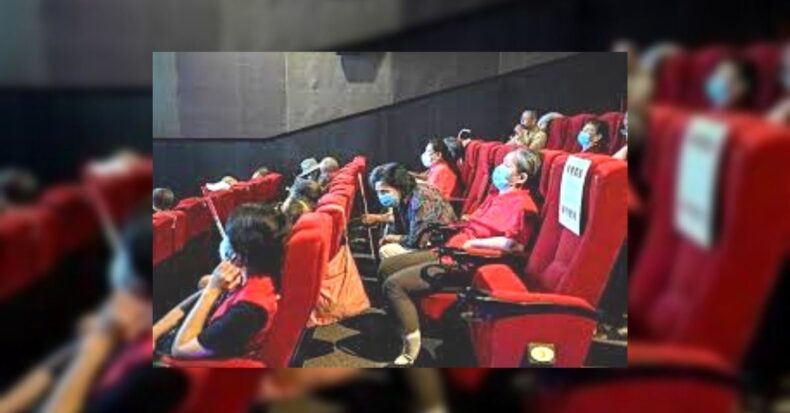Beijing-based group Hong Dandan is committed to assisting visually impaired people in enjoying films.
The company has successfully managed to covert visual elements of movies to spoken language so that blind people can understand the storyline in a much better way.
The group was formed in 2004 and held one event every Sunday in Beijing. And now, more than 30 cities in China follow a similar service pattern for the visually impaired.
Limited opportunities for the visually impaired
According to the China Association for the blind, China currently has more than 17 million visually impaired people, and eight million are entirely sightless.
Over the past two decades, the government of China has taken all the significant steps to make day-to-day life easier for its blind population.
All the major and minor cities have blind walkways, elevator panels have braille markings, and the blind candidates are even allowed to take exams for admission in the government school, colleges and jobs.
But what Dawing Leung, founder of Audio Description Association in Hong Kong, feels is that “Blind people do get the opportunity to get educated and be financially stable, but they have limited opportunities to participate in cultural activities.”
“There is no awareness among the authorities on the need for audio narrations in cinemas, theatres or art exhibitions. Even the audio descriptions at museums are written with keeping sighted people in mind, they might tell you about the history of the object, but it rarely describes what it looks like, what is its colour or texture” she said.
Xin Mu theatre in Beijing
Xin Mu theatres, a small group of volunteers, were the first to introduce films to blind audiences in China.
They organize free weekend shows in the heart of old Beijing town, and dozens of blind moviegoers come to their Saturday screening without fail.
They surprisingly follow a low–tech method of narration what is happening on screen, including the facial expressions, unspoken gestures, setting, costumes, whether, every minute detail is described well by the narrator so that that audience doesn’t miss out on anything and can enjoy the movie just like any other person.
Many activists have devoted years and have pushed for legislation mandating audio descriptions for films, televisions or artwork in mainland China.
All the legislations seem to have fallen deaf ears, as the makers have made no progress or efforts.
Thus, the free film screening by Xin MU offers a rare chance for blind people to be a part of the visual world and feel the bright colours through their ears.













